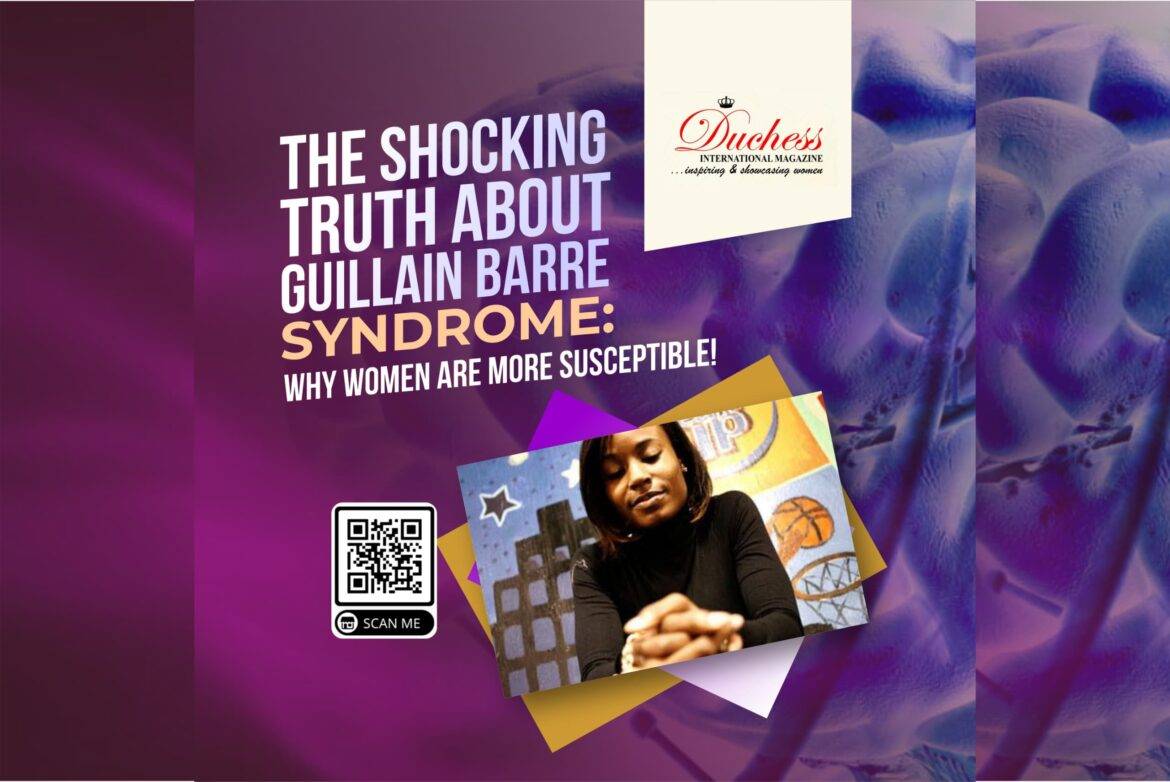Guillain-Barre Syndrome (GBS) is a rare and debilitating neurological disorder that affects the peripheral nervous system. This disorder, characterized by muscle weakness, tingling sensations, and, in severe cases, paralysis, can have a profound impact on an individual’s quality of life. While GBS affects both men and women, there is growing evidence to suggest that women may be more susceptible to developing this condition. It is important to unearth the shocking truth about Guillain-Barre Syndrome and explore the underlying factors that contribute to the gender disparity in its occurrence. By understanding the complex interplay of biological, environmental, genetic, and socioeconomic factors, we can shed light on why women are more vulnerable and pave the way for improved diagnosis, treatment, and management of GBS.
Guillain-Barre Syndrome, often referred to as GBS, is a rare but serious condition that affects the nervous system. It is characterized by the body’s immune system attacking its own nerves, leading to muscle weakness and, in severe cases, paralysis. GBS can be a life-threatening condition, requiring immediate medical attention.
What is Guillain-Barre Syndrome?
Put simply, Guillain-Barre Syndrome is like a glitch in the body’s wiring. It occurs when the immune system mistakes the peripheral nerves, which connect the brain and spinal cord to the rest of the body, for foreign invaders. This misguided attack on the nerves causes inflammation and damages the myelin sheath, which is essential for proper nerve function.
While Guillain-Barre Syndrome is considered rare, it is crucial to understand its significance. GBS affects people of all ages and backgrounds worldwide, with an estimated incidence of 1 to 2 cases per 100,000 people each year. The condition can progress rapidly, leading to muscle weakness, loss of coordination, and even respiratory failure.
Understanding the Gender Disparity in Guillain-Barre Syndrome
Statistics have shown that women are more likely to develop Guillain-Barre Syndrome compared to men. The exact reasons for this gender disparity are not yet fully understood, but researchers have observed a consistent pattern worldwide. While the specific causes of the gender disparity in Guillain-Barre Syndrome are still under investigation, several factors have been suggested. Biological and environmental factors may interplay to increase the vulnerability of women to this condition.
Let’s now take a closer look at the potential biological factors contributing to the higher risk of Guillain-Barre Syndrome in women:
Hormones, those pesky little messengers in our bodies, could be part of the story behind the gender disparity in Guillain-Barre Syndrome. Researchers have found evidence suggesting that hormonal fluctuations, particularly estrogen and progesterone, may play a role in either triggering or exacerbating the condition.
Estrogen and progesterone, the dynamic duo of female hormones, have long been known to influence various aspects of our health. It turns out they also have an impact on the immune system. Fluctuations in these hormone levels throughout a woman’s menstrual cycle, pregnancy, or menopause can potentially affect immune responses, making women more susceptible to conditions like Guillain-Barre Syndrome.
Environmental Factors: Exploring the Impact of Lifestyle and Exposures
When it comes to health, our lifestyle choices play a significant role. While no specific lifestyle factor has been directly linked to the gender disparity in Guillain-Barre Syndrome, certain habits, such as smoking or having a sedentary lifestyle, can adversely affect the overall immune system, potentially increasing the risk for both men and women.
Another aspect to consider is occupational exposures. Some occupations, such as healthcare workers who may come into contact with infectious agents or certain chemicals, could potentially increase the risk of developing Guillain-Barre Syndrome. However, more research is needed to determine if these occupational factors contribute to the gender disparity observed.
While the exact reasons behind why women are more susceptible to Guillain-Barre Syndrome remain a puzzle, hormonal influences and the interplay of biological and environmental factors may be key factors. By gaining a deeper understanding of these factors, we can move closer to finding better ways to prevent and treat Guillain-Barre Syndrome for everyone. And remember, ladies, take care of yourselves, because apparently, even your nerves can have a gender preference!



